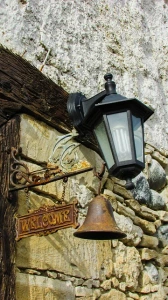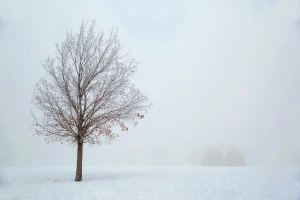Where Among Dreams She Had Often Walked
 Small and delicate, fair as a flower,
Small and delicate, fair as a flower,
A woman on this earth who
At thirty-seven of her years passed
Away. Since her absence from the visible
World she has lived in many of my memories.
She died too soon to be aware of much of
My life, and I will not be able
To tell her about it, nor she to share her
Thoughts of what her life might
Have been had she grown old where
It ended: in beauty far across the pitching
Blue sea, along rows of white-sand beaches
Where among dreams she had often walked.
Chicago’s El Trains
At eight years–
My place of birth.
Walking through
The viaduct
Under the el platform
And into and out of
The cool, spread shadows
Amidst the thunderous
Rattle of the trains
Overhead that make
The earth and my heart
Tremble
The Welcome Inn
 We enter that tumult of sweat and whiskey, amidst the
We enter that tumult of sweat and whiskey, amidst the
Glow of the red bar lights and clouds of floating smoke
And stand next to a tattooed woman snapping a
Bull whip and wearing a black satin cape with red lining
And see a man pull a pistol on another man. The
Second man snatches the gun from the first and
Slugs him over the head. He turns to us
Disgusted with his friend, supine on the floor, and says
“He’s always doing that,” and that is the end of that.
What Are We To Do?
What’s the use trying to say what I feel?
How does it happen? How is it concluded
That this person should be happy, that one not?
This one healthy; that one ill; one blessed, the other
Troubled; he–undeserving– to live a long
And happy life; she who in her life has hurt
No one to die before she has fully lived?
How is it decided that this one should be put
Together with that one and that they should
Love each other all their days, but that another
Shall despair in loneliness. What happens to us
That we become the people we are, and
What are we to do now?
Judy Wazorick
We were in grammar school together.
She had a blue eye and a brown
And sat in the last seat of the last row.
She was very shy, but when I looked at her
She smiled at me.
Now I see she won’t be at the reunion,
And I am so sad because Judy Wazorick
 Has passed away.
Has passed away.
Butterflies, Flowers, and Lovers
Butterflies, you and I,
Fluttering over gardens–
Our little world–
From flower to flower
In search of that one who is to us,
Though perhaps to no one else,
The loveliest flower,
And when we find that lovely flower,
Then we are content forever.
The Girl in Greenwich Village
I saw you
Looking at me
Knowing I had
Looked at you,
No chance ever
To see you again
Or you to
Look at me again
With your dark eyes,
You who had I
Known long ago
I would have run
My finger over
So carefully
And held
In my hand
Like an orchid.
Awaiting the Arrival of Dawn
 I delight in darkness and know that a bond
I delight in darkness and know that a bond
Intertwines me with everyone who exists
Or ever has, or will; and know too that some
Yet unknown purpose to my life beckons fondly
And that one day I will discover it.
So I dream of splendid things through
Each day as my life flickers away.
I welcome the luminous skies above and the
Magnificence of morning–and I will all
My life while awaiting the arrival of dawn.
A Man Like Every Other
I thought as all children think of their fathers
At that age that he was a great man. He had
Made a life out of little accomplishments that
Were magnificent to me–had made a paper
Weight, had painted a wagon, could change a tire.
Then he felt he had done something, and so did I,
A man who would live in anonymity, do the best he
Could, be remembered a little while
And forgotten. A man like every other.
Lightly Falling Snow
In the mountains, near the snow line, a blue
Haze is draped in grandeur over the land,
The summits surrounding us stupendous
.We have a snowball fight and then lie exhausted
And breathing hard in the snow while laughing
And making angels with our arms and legs.
We then come to an inn set far back from the road
Across a gravelly parking lot surrounded by tall trees
That are black with rain that fell last night.
We go up the long wooden stairway to a landing
With roughly-hewn wooden tables and chairs. But it is
Too cold to sit outside and so we go in.
The dining room is empty but for a waiter leaning
Against a wall. The tables are set with white linen
And gold utensils, and dressed as we are we seem
Out of place. We sit at a table by a wide window with
A good view of the mountains. The waiter comes over and
We order coffee.
From the window, Nick, the waiter,
 And I watch a lightly falling snow.
And I watch a lightly falling snow.
Bedtime Prayer of a Little Boy
Of my family I thought in my child’s way–
They were all of them–each of them–good people, devoid of malice,
And I was blessed to be among them. Why, I wonder, had I been so
Favored. I thought, “Dear Lord, keep us safe, and please treat us kindly.
Spare us please from suffering or so apportion it so that none of us is asked
To bear more than one should be required to.” I prayed, as always fast,
“God bless Mom and Dad and…” and I fell asleep beseeching God.
The day ended then, and I dreamed and in a moment another dawn broke.
Hobos in a Clearing
We reach the crest of the hill at dusk.
Below us, like the camps of infantry,
Burn the scattered fires of forgotten men,
Each a separate picture.
They live in the open or in
The opulence of tarpaper lean-tos against a tree,
And migrate as punctually as geese.
They wear black–perhaps it is the soot of freight trains–
And squat on their haunches like crickets
Beside the snapping flames.
Streams of smoke trail off high into the trees
And embers flicker and fade, flicker and fade
In the harsh bite and sparkle of the wind,
And glow bronze on the men’s untroubled faces
Late into the night.
Ice Cream Man
A bevy of children
Proffering handfuls
Of nickels and dimes
To the wizened Ice Cream
Man in exchange for
A bar thickly crusted with
Brittle dark chocolate
Or nuts, or both
LONGER NARRATIVE POEMS
Lyric for Angela
At seventy-five cents per hour
I am a twelve year old
Professional bagger of cans
Of pineapples and tomatoes,
Weigher of potatoes,
Stocker of shelves
So the labels artfully frame
For the customers’ eyes
The Gerber baby,
The Scott tissues,
The orange carrots,
The vivid green peas.
When I am near Angela,
The dark-eyed store owner
Who favors me
My heart beats faster.
I cannot breathe
When I am near Angela.
As she works she sings.
Her spirit enfolds and singes me
As with molten tongs.
She smiles with
Such sweetness, gentleness,
And goodness it breaks my heart.
Her hair, her voice, her hands, her
Presence bring
A quality into my life
Which I know to be love.
My youth is purer,
My memories more
Lasting because of her.
Angela’s husband is awful
To her and treats
Her cruelly.
I vow that one day I will
Whisper to Angela,
“Why don’t you run away?”
But I fear she will not
And that after I have gone
To high school and college
And am grown up
She will still be heard
Singing in the aisles
Of this little store
Like a bird in her cage.
A Wagon, an Old Man, and Old Horse
(A Scene from Edgewater, Chicago, 1949)
Keeping to no particular schedule other than
It be daylight nearing evening, from down the alley
Through sunlight and shade, always from the west,
Never the east, comes the old disheveled
Rag Man–appearing to be a rag himself.
He sits high atop a large horse-drawn, creaking wagon
Loaded with junk, his gruff, metallic voice preceding
Him by half a city block: “Rags, old iron.”
As the wagon nears, I hear, faintly at first, and then
More clearly, more purely, more emphatically, the
Mellow clomp, clomp, clomp of the shod hooves
Of the old brown mare whose head hangs low, neck bowed,
And swaying slowly to the rhythm of her gait. She elevates
Her head as high, as majestically, as a queen of horses
Who is a about to speak and shakes her harness
Chains musically but uncomfortably and opens wide her mouth
To gulp the air. Then I hear her snorts as she struggles
Futilely with her bit and notice her bulbous brown eyes
Glazed with an expression of weariness and sorrow,
And the sunlight glistening off the thick sheet of sweat coating
Her flanks and the sinewy twitching muscles of her legs.
The sounds of hooves grow soft, then softer, and vanish,
Not to be heard again until another afternoon I witness the
Elegant procession of a wagon, a man, and a horse, and
Hear a voice bellowing, “Rags, old iron.”
On A Beach on a Wind-Blown Day
 So there it is, laid out in my mind: that moment in our lives,
So there it is, laid out in my mind: that moment in our lives,
That day in July. We are told that memories recede, grow fainter,
Fall to tatters, but I remember that afternoon that
Has persisted through all the successive years, recalling it
Just as I lived it. Though it is intangible and lies in memory alone,
Nothing else is as real; everything vanishes in comparison.
It is with me when I bend to tie my shoelace, or ask for a fork. Or
Fall asleep: my sister on the beach gripping my hand not to be
Swept away by the swirling, angry wind, and she standing on her
Tip-toes on a little stool down the aisle in the stacks at the dusty library,
Reaching for Little Women; my realizing in that instant, watching her,
That she was irreplaceable; I couldn’t do without her. So with her
In front of me on her red bike, I on my blue English racer, the two
Of us hurtled down Chicago streets at dusk. Her black hair flowing,
We raced–a glorious day when we were young.
Nurse’s Goodbye to Her Patient
I saw my sister’s favorite nurse up ahead
In the parking lot and called her name and she stopped
And turned around and I ran and caught up with her.
I expressed my gratitude to her for the gentleness
She had shown my sister. I told her I would never forget
Her kindness and thoughtfulness, and that I
Would remember her all my life, as I have.
She told me
What a good patient Sharon was, how despite her suffering
Sharon had never complained and was always so nice and
Had good manners, and how it would make her very sad
When she would have to say goodbye to her.
That night I left for home.
© 2024 David J. Rogers
For my interview from the international teleconference with Ben Dean about Fighting to Win, click the following link:
Order Fighting to Win: Samurai Techniques for Your Work and Life eBook by David J. Rogers
or
Order Waging Business Warfare: Lessons From the Military Masters in Achieving Competitive Superiority
or


A lovely, if poignant, tribute, David.
LikeLike
Thank you, Rose, for a compliment from a writer
LikeLike
So many marvelous poems, David. Thank you for sharing them with us. Hugs.
LikeLike
Thank you for reading the poems and for your generous comment.
LikeLike